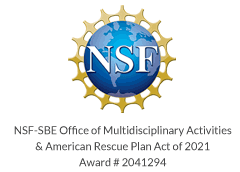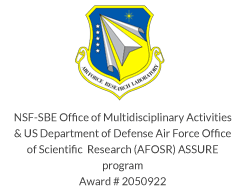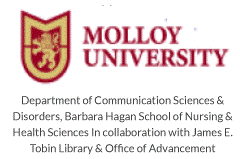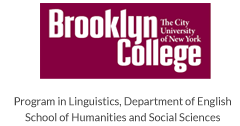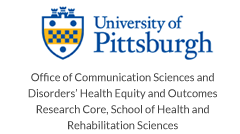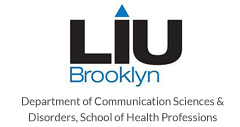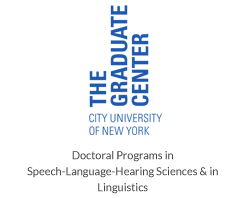Policies & Manuscript Guidelines
Contents
- Philosophy of Intersection of Linguistics, Language & Culture Journal
- Who Can Submit?
- General Submission Rules
- Manuscript Guidelines
- Rights for Authors and DigitalCommons@Molloy
Philosophy of Intersection of Linguistics, Language & Culture Journal
The ILLC Journal was established to diversify both futures professionals (researchers, educators, clinicians, policy-makers and technicians) in STEM-based language sciences and the body of research produced in linguistics and speech-language-hearing-communication sciences..
Who Can Submit?
Submissions are welcome from emerging researchers, in the US and abroad. ‘Emerging researchers’ refer to undergraduate students, former undergraduate students no longer enrolled in a Higher Education program or students who have entered graduate school but have not yet completed their graduate program. The research described in the manuscript must have been conducted while the author was an undergraduate student. The emerging researcher must be the lead author, although co-authors can be peers, more advanced students, or faculty members. A faculty mentor must endorse the submission.
General Submission Rules
Once uploaded to the ILLC Journal submission form, submitted manuscripts will go through a two-stage review process. The first stage involves a determination by the Chief Editors as to whether the manuscript meets the inclusion criteria of the journal, which specializes in STEM-driven investigations of speech, language, hearing, and communication. Submissions will be either: forwarded to reviewers for the second stage, returned for revisions and resubmission, or rejected. The second stage involves a double-blind evaluation of the manuscript by two reviewers: one established expert reviewer and one emerging expert reviewer—a doctoral student. The author(s) will receive the outcome of the evaluation of their manuscript and will have the opportunity to receive guidance/mentorship for their revisions and final submissions from a doctoral student mediator. We expect the process of evaluation and the guided revisions to be completed within 100 days. The turn-around time between submission and possible publication is faster than most academic peer-reviewed journals. Pilot studies that include more limited data sample and/or population sample are welcome. The authors retain the copyright of their article.
Submitted articles cannot have been previously published, nor be forthcoming in an archival journal or book (print or electronic). Please note: "publication" in a working-paper series does not constitute prior publication. In addition, by submitting material to Intersection of Linguistics, Language & Culture Journal, the author is stipulating that the material is not currently under review at another journal (electronic or print) and that he or she will not submit the material to another journal (electronic or print) until the completion of the editorial decision process at Intersection of Linguistics, Language & Culture Journal. If you have concerns about the submission terms for Intersection of Linguistics, Language & Culture Journal, please contact the editors.
Manuscript Guidelines
Intersection of Linguistics, Language & Culture Journal has no general rules about the formatting of articles upon initial submission. There are, however, rules governing the formatting of the final submission. See Final Manuscript Preparation Guidelines for details. Although bepress can provide limited technical support, it is ultimately the responsibility of the author to produce an electronic version of the article as a high-quality PDF (Adobe's Portable Document Format) file, or a Microsoft Word, WordPerfect or RTF file that can be converted to a PDF file.
It is understood that the current state of technology of Adobe's Portable Document Format (PDF) is such that there are no, and can be no, guarantees that documents in PDF will work perfectly with all possible hardware and software configurations that readers may have.
Rights for Authors and DigitalCommons@Molloy
As further described in our submission agreement (the Submission Agreement), this is an open access publication and authors retain their copyright.
Attribution and Usage Policies
Reproduction, posting, transmission or other distribution or use of the article or any material therein, in any medium as permitted by a personal-use exemption or open access agreement requires attribution to the author and journal with a citation.
Personal-use Exceptions
The following uses are always permitted to the author(s) and do not require further permission from DigitalCommons@Molloy provided the author does not alter the format or content of the articles, including the copyright notification:
- Storage and back-up of the article on the author's computer(s) and digital media (e.g., diskettes, back-up servers, Zip disks, etc.), provided that the article stored on these computers and media is not readily accessible by persons other than the author(s);
- Posting of the article on the author(s) personal website, provided that the website is non-commercial;
- Posting of the article on the internet as part of a non-commercial open access institutional repository or other non-commercial open access publication site affiliated with the author(s)'s place of employment (e.g., a Phrenology professor at the University of Southern North Dakota can have her article appear in the University of Southern North Dakota's Department of Phrenology online publication series); and
- Posting of the article on a non-commercial course website for a course being taught by the author at the university or college employing the author.
- The authors retain the copyright of the article for subsequent submission and or publication of the full or partial content of the manuscript.
People seeking an exception, or who have questions about use, should contact the editors.
General Terms and Conditions of Use
Users of the DigitalCommons@Molloy website and/or software agree not to misuse the DigitalCommons@Molloy service or software in any way.
The failure of DigitalCommons@Molloy to exercise or enforce any right or provision in the policies or the Submission Agreement does not constitute a waiver of such right or provision. If any term of the Submission Agreement or these policies is found to be invalid, the parties nevertheless agree that the court should endeavor to give effect to the parties' intentions as reflected in the provision, and the other provisions of the Submission Agreement and these policies remain in full force and effect. These policies and the Submission Agreement constitute the entire agreement between DigitalCommons@Molloy and the Author(s) regarding submission of the Article.

